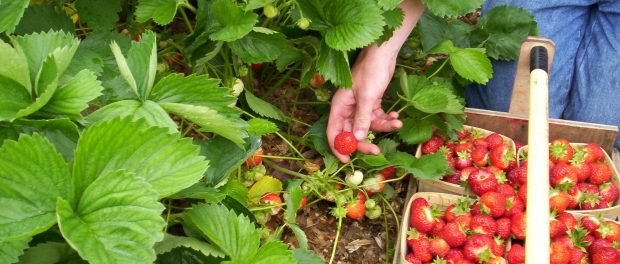Farm labour shortage may hit food prices, warns Lynx Purchasing
 Lynx Purchasing Strawberry Picking
Lynx Purchasing Strawberry Picking
The shortage of migrant labour facing UK farmers could hit both supplies and prices of seasonal fruit and vegetables this summer, warns buying specialist Lynx Purchasing.
With growers struggling to recruit overseas workers, the newly-published Summer 2018 edition of the Lynx Purchasing Market Forecast urges hospitality and catering businesses to monitor supplier prices carefully as the summer season gets underway.
Managing director Rachel Dobson says, “Our usual advice is to make the most of fresh, seasonal produce, but this summer that comes with an additional warning due to the labour issue. With fresh salad crops and summer berries now ready for picking, the industry is struggling to recruit enough seasonal workers.
“It’s not simply concerns about Brexit, although that’s a factor; EU workers now have a wider range of employment options and many have seen wages increase in their own country or can travel somewhere closer to home for seasonal work.
“Without enough migrant workers, there’s a risk that produce is simply left in the fields. Farmers and growers have asked for a commitment from government that they will have access to sufficient numbers of permanent and seasonal workers, and it’s an issue which needs a speedy resolution.”
The Market Forecast draws on exclusive data from a range of suppliers working with Lynx Purchasing to look at hospitality buying trends. Other produce areas highlighted in the Summer 2018 edition include:
- Seafood: With 75 per cent of the current UK catch exported, operators who can broaden the range of fish and shellfish species featured on menus and specials boards are at an advantage over those that restrict their offer to the most popular varieties. Using UK-caught species in season such as hake, plaice and lemon sole will help keep menus
- Meat: Beef will see a seasonal increase in the price of forequarter cuts of around of 15-20% as the summer barbecue season increases demand for burgers. Caterers who can switch menus to cuts such as topside and silverside should get better value. Lamb prices hit a five year high this spring, with the UK exporting more lamb due to the exchange rate, and New Zealand shipping more to far east.
- Dairy: The ‘spring flush’, which normally sees milk output rise, was negligible this year due to the cold conditions. Butter and cream prices are expected to continue to rise across the summer and into the autumn, as lower dairy production in the UK pushes up demand.
- Vanilla: Sharp price increases were initially caused by the loss of much of the crop of vanilla pods in Madagascar due to extreme weather, and the situation has been made worse by domestic unrest over control of the remaining supplies. Wholesale prices for vanilla extract, in high demand for ice cream and dessert production, are up by around 30% this year.
Dobson adds. “Although the two bursts of freezing weather at the start of spring caught farmers off guard, the supply chain has plenty of experience of extreme conditions.
“Growers have largely caught up, so it would be a shame now if caterers have to reduce the amount of fresh produce featured on summer menus due to higher costs caused by the labour shortage. We’ll be monitoring the situation and advising customers as the season progresses.”
The Summer 2018 Market Forecast is available to download free from the Lynx Purchasing website at Lynx-Purchasing-Market-Forecast-Summer-18-pdf
Lynx Purchasing works with more than 2,200 hospitality and catering operators to match them with the best suppliers and get the best possible prices on food and drink, as well as a whole range of essential products and services. Lynx’s buying experts help operators buy better and save time and money, year after year.


Leave a comment